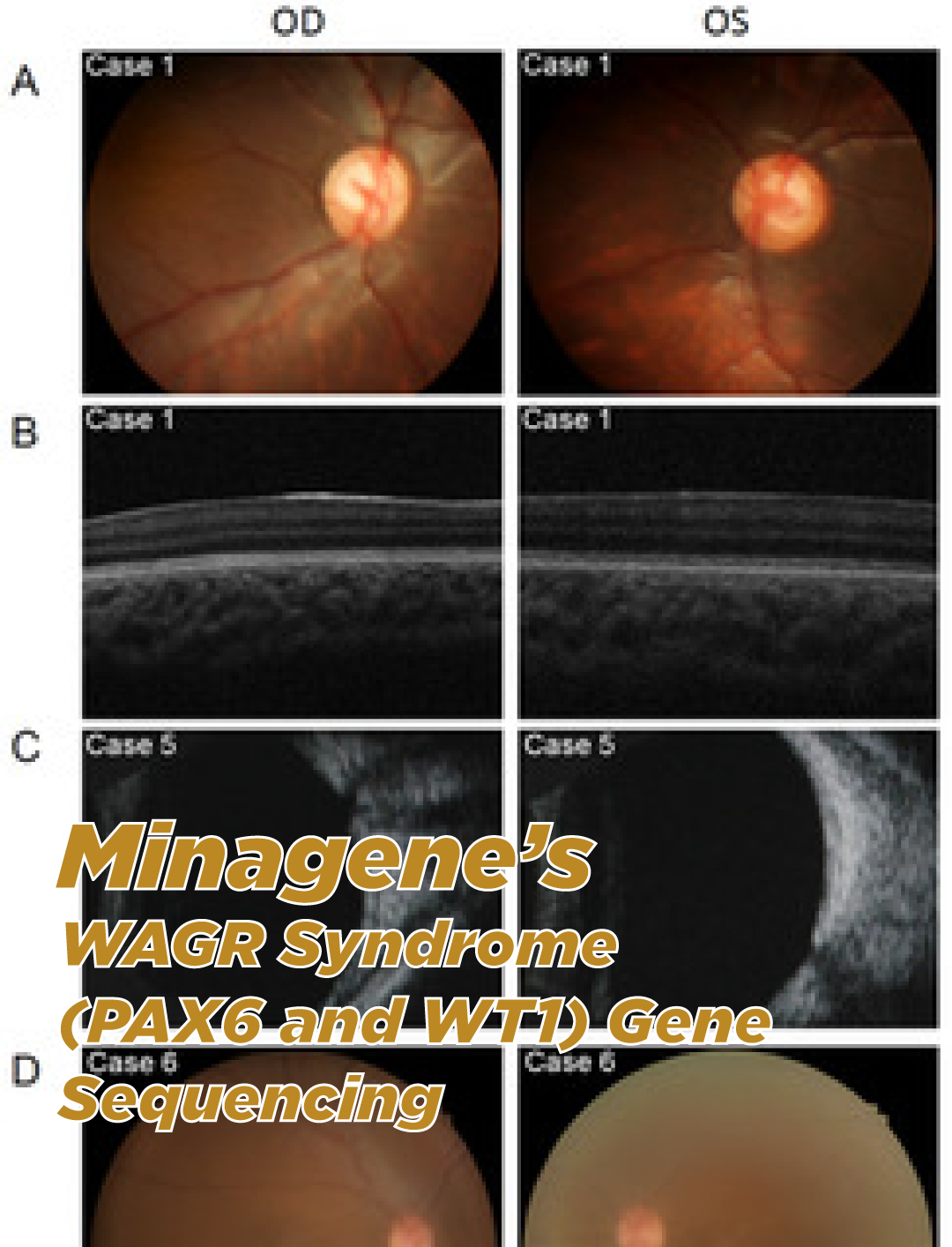
Overview
Minagene provides specialized gene sequencing of the PAX6 and WT1 genes associated with WAGR syndrome. Our comprehensive analysis aims to identify disease-causing mutations, enabling accurate diagnosis, risk assessment, and personalized care plans for individuals affected by this rare genetic disorder.
Methodology
WAGR syndrome is a rare genetic disorder characterized by Wilms tumor, aniridia, genitourinary abnormalities, and intellectual disability. It is primarily caused by deletions or mutations in the PAX6 and WT1 genes. Gene sequencing of PAX6 and WT1 helps identify these genetic abnormalities, providing valuable insights into the genetic landscape of WAGR syndrome.
Gene sequencing of PAX6 and WT1 is essential for accurate diagnosis, risk assessment, and personalized care planning for individuals with WAGR syndrome. It allows clinicians to identify disease-causing mutations or deletions, facilitating appropriate medical interventions, genetic counseling, and support services.
Minagene's WAGR Syndrome Gene Sequencing Service:
-
Minagene utilizes advanced gene sequencing techniques to analyze the PAX6 and WT1 genes. Our comprehensive service includes the following key features:
-
Genetic Sequencing: We perform sequencing of the PAX6 and WT1 genes to identify disease-causing mutations or deletions associated with WAGR syndrome. This analysis provides crucial genetic information for accurate diagnosis and risk assessment.
-
Accurate Diagnosis: Our gene sequencing service enables accurate diagnosis by detecting disease-causing mutations or deletions in the PAX6 and WT1 genes. This information helps guide appropriate medical interventions, treatment strategies, and genetic counseling.
-
Risk Assessment: Gene sequencing results allow for risk assessment, providing information about the likelihood of the condition being passed on to future generations. This information is crucial for genetic counseling and family planning decisions.
-
Personalized Care Plans: By unraveling the genetic basis of WAGR syndrome, our gene sequencing service facilitates personalized care plans tailored to the specific needs of affected individuals. It enables targeted interventions, monitoring, and support services, optimizing outcomes and improving the quality of life.
-
